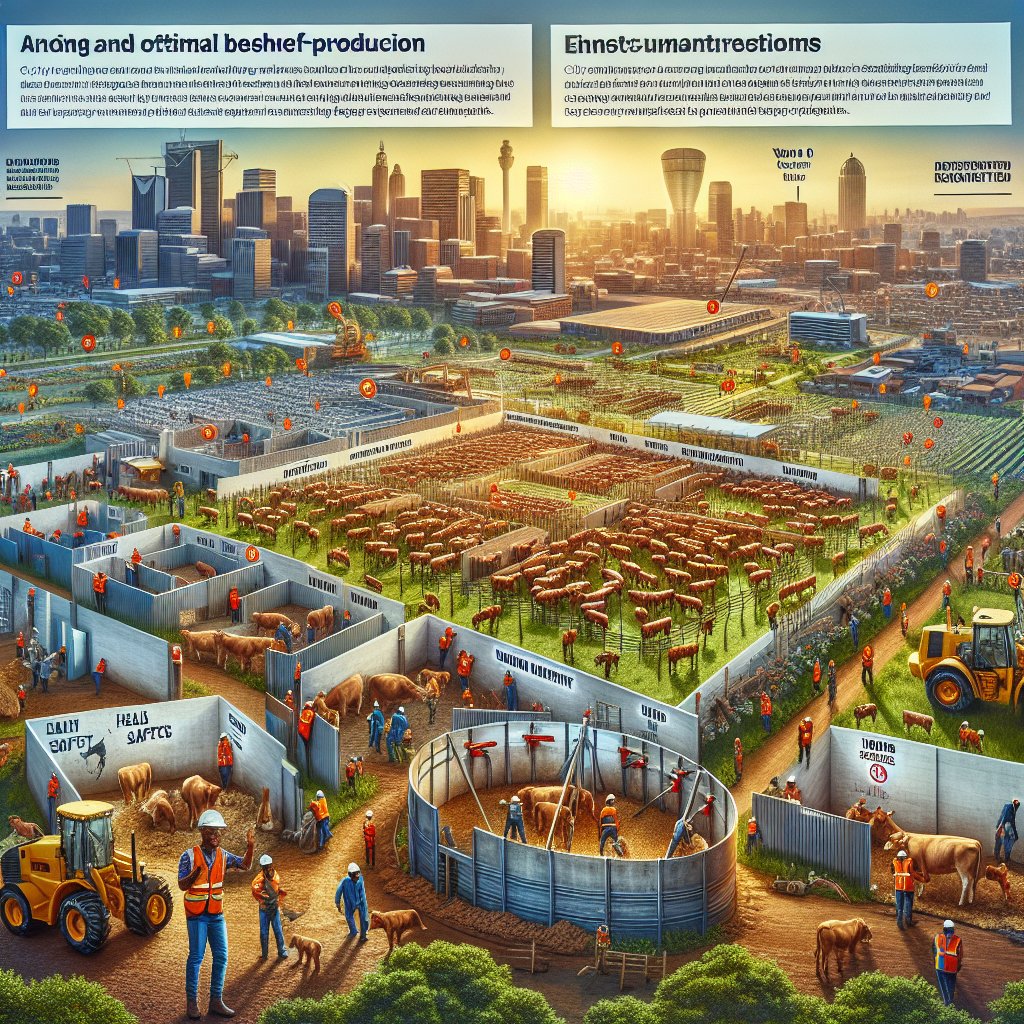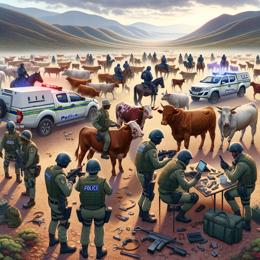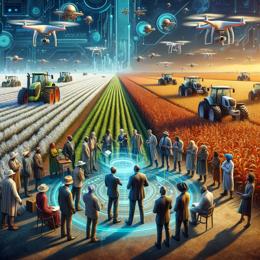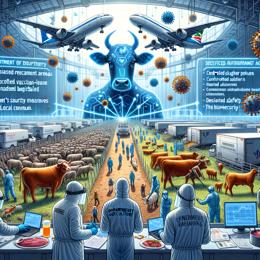Content created by AI
Tshwane Invests in Livestock Farming for Economic and Agricultural Development
The City of Tshwane has taken a decisive step to fortify its agricultural sector with a substantial R11 million investment earmarked to improve beef production. The injection of capital will benefit the livestock farming community in Rust de Winter, specifically targeting Ward 99 where 15 cattle-handling facilities are set to be built. This move aligns with the city's strategic goal to enhance the local economy and provide support to the agricultural industry, an essential facet of Tshwane's growth and sustainability agenda.
Coordinated by the Environment and Agriculture Management Department, the focus is not only on increasing production capacities but also on ensuring that modern and optimal beef cattle-handling methods are in place. This includes the imperative mission of improving overall farm safety, crucial for workers frequently dealing with large livestock. Additionally, improved handling methods are expected to lead to better animal welfare, reduced stress among cattle, and ultimately, a boost in farm productivity and efficiency.
The funding for this initiative has been provided by the Department of Agriculture, Land Reform, and Rural Development, indicating a joint effort and commitment by government entities to bolster the sector. Ziyanda Zwane, MMC for Environment and Agriculture Management, emphasized the project's multifaceted benefits, including economic stimulus through job creation and business opportunities. Initially, two construction companies have reaped the rewards from the project, generating 40 job positions in the construction phase. At present, eight out of the 15 cattle-handling facilities have been successfully completed.
According to Zwane, the city's role is not simply that of a financier but as a partner to the farmers. Tshwane is set to continue offering its support to farmers post-construction, aiding in ensuring both growth and the ongoing viability of the beef sector. The support system is anticipated to be a collaborative effort, involving key players and stakeholders within the agricultural sector to create a harmonious and productive farming ecosystem.
Another critical element highlighted by Health MMC Rina Marx pertains to the proactive measures the city has taken regarding health concerns. With the cholera outbreaks in neighbouring countries like Zimbabwe, the city has enacted steps to ensure that a rapid response is available for any potential cases that might arise, thereby zealously safeguarding both the health of its citizens and the stability of its newly bolstered industry.
This commitment to enhanced agricultural practices and preparedness in health safety is seen as an integral part of Tshwane’s broader strategy for a more prosperous and resilient community. With the continued implementation of this investment, Tshwane sets an example of how local governments can foster economic development while upholding the highest standards of animal welfare and public health.










